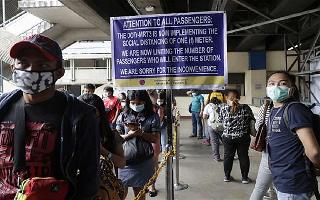
The survey reveals that as high as 65.2 per cent students reported physical problems, 23.40% gained weight, 26.90% suffered headache/ irritability and 22.40% had reported eye pain and itching.
Effects of lockdown on children are surely manifesting in a very ugly and unpleasant way. Not much research has been done so far, but a recent sample survey reveals that around 65% children were found to be addicted to their devices, mostly mobile phones. When asked to leave their devices these children expressed anger, cried, didn’t listen to their parents, showed irritable behaviour. They were unable to stay away from the device even for half an hour.
The study was carried out by physicians at JK Lone Hospital in Jaipur on 203 children to study the impact of the COVID-19 lockdown. It was conceived by Dr Ashok Gupta, Medical Superintendent & Senior Professor, Department of Pediatrics. Under his direction, this study was carried out by Dr. Ramesh Chaudhary, Dr.Dhan Raj Bagri, Dr.Kamlesh Agarwal, Dr.Vivek Athwani and Dr. Anil Sharma.
The survey reveals that as high as 65.2 per cent students reported physical problems, 23.40% gained weight, 26.90% suffered headache/ irritability and 22.40% had reported eye pain and itching. 70.70% students with high screen exposure during the lockdown days have behavioural problems, 23.90% skipped their daily routines, 20.90 per cent became careless, 36.80 per cent became stubborn and 17.40% reported a reduced attention span. It was concluded that after the lockdown almost all the children had a screen time increase of 2-3 times (5 hours/day from 2 hours/day) which reduced their physical activity.
Data was gathered on electronic platforms and social media for the study in which the latest and standard questionnaires were used. After obtaining consent, questionnaires were sent to the parents.
About 50% of these children had difficulty in sleeping after going to bed for 20 to 60 minutes and 17% of the children wake up in the middle of their sleep at night and take 20 to 30 minutes to get back to sleep. They also suffered daytime sleepiness, daytime tiredness, headache and irritability, weight gain, change in body and back pain and changed toilet habits.
Complaints of behaviour change were also reported in about two-thirds of the children. About 6-7 percent of the children had bedtime fears, stubbornness increased to 32%. The incidence of uncontrolled anger (tantrums) in children also increased by 30%.
Dr Anamika Papriwal, a psychologist, told IANS that family fights over electronic gadgets like laptops, computers and mobile phones, have become common during this ‘work from home’ (WFH) regime.
“I have been receiving regular calls from families facing erratic behaviour from their kids. They share their harrowing tales,” she said.
The study overall concluded that COVID-19 and the lockdown had a significant negative impact on the physical, mental and emotional health of the children leading to poor quality sleep, psychiatric disorders and parent-child discord.
Posted By: Tushar Kumar Laleria
